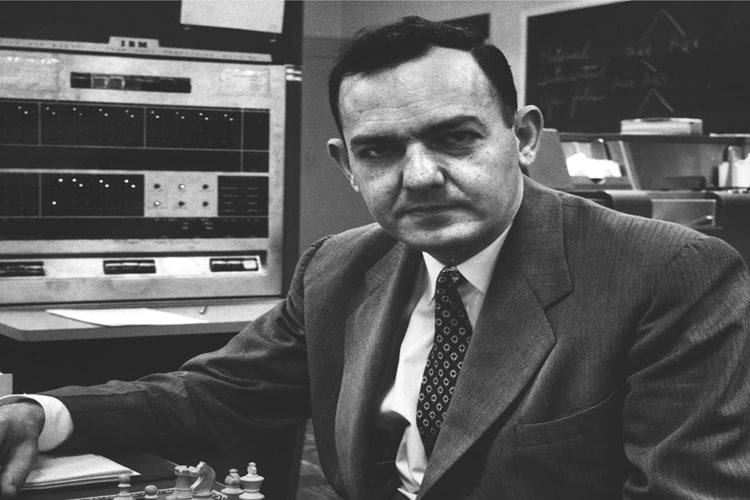Herbert A. Simon: Architect of Decision-Making Theory and Artificial Intelligence

Herbert A. Simon (June 15, 1916 – February 9, 2001) was an American political scientist. He was awarded the Nobel Prize in Economic Sciences.
Life and Career
Herbert A. Simon was born on June 15, 1916, in Milwaukee, Wisconsin, USA. Simon attended the University of Chicago, where he studied political science, economics, and mathematics. He obtained his bachelor’s degree in 1936 and went on to earn a Ph.D. in political science in 1943.
After completing his Ph.D., Simon joined the Illinois Institute of Technology, where he worked on the development of a computer called the ILLIAC. This experience sparked his interest in the intersection of computer science and human decision-making. Simon’s association with Carnegie Mellon University (formerly Carnegie Institute of Technology) began in 1949, where he spent the majority of his academic career. He was a professor of administration and psychology. He also played a key role in establishing the Graduate School of Industrial Administration (now the Tepper School of Business).
Simon’s groundbreaking work in the 1950s and 1960s focused on decision-making processes, introducing the concept of “bounded rationality.” He argued that human decision-makers often operate under constraints, such as limited information and cognitive capabilities. Simon’s influential book, “Administrative Behavior,” published in 1947, laid the foundation for the study of organizational decision-making. It marked the beginning of his exploration into the psychology of decision-making.
Simon was awarded the Nobel Prize in Economic Sciences in 1978 for his pioneering research in the social sciences, particularly his work on organizational decision-making and the concept of bounded rationality. Simon made significant contributions to the field of artificial intelligence, especially in the development of problem-solving techniques. His work laid the groundwork for later advancements in AI and cognitive science.
He died on 9 February 2001, in Pittsburgh, PA, USA.
Award and Legacy
Herbert A. Simon was awarded the Nobel Prize in Economic Sciences for his pioneering research in the fields of organizational decision-making and economics. He shared the prize with economists James E. Meade and Leonid Hurwicz.
Simon’s concept of “bounded rationality” revolutionized the understanding of decision-making processes. His research challenged the traditional economic assumption that individuals make decisions with perfect information and unlimited cognitive resources. The idea that decision-makers operate under constraints has had a profound impact on various fields, including economics, psychology, and management.
Simon’s book, “Administrative Behavior,” remains a classic in the study of organizational behavior and decision-making. The work laid the foundation for the field of organizational theory and has influenced generations of scholars and practitioners.
Simon’s interdisciplinary approach to research, combining insights from economics, psychology, computer science, and other fields, has inspired a new way of thinking about complex problems. His ability to bridge gaps between disciplines has influenced subsequent generations of researchers to adopt a more holistic perspective.
Simon’s contributions to artificial intelligence, particularly his work on problem-solving and symbolic reasoning, have left a lasting impact on the development of AI. His ideas have influenced the design of intelligent systems and the study of how humans and machines can work together effectively.
Observer Voice is the one stop site for National, International news, Sports, Editor’s Choice, Art/culture contents, Quotes and much more. We also cover historical contents. Historical contents includes World History, Indian History, and what happened today. The website also covers Entertainment across the India and World.

